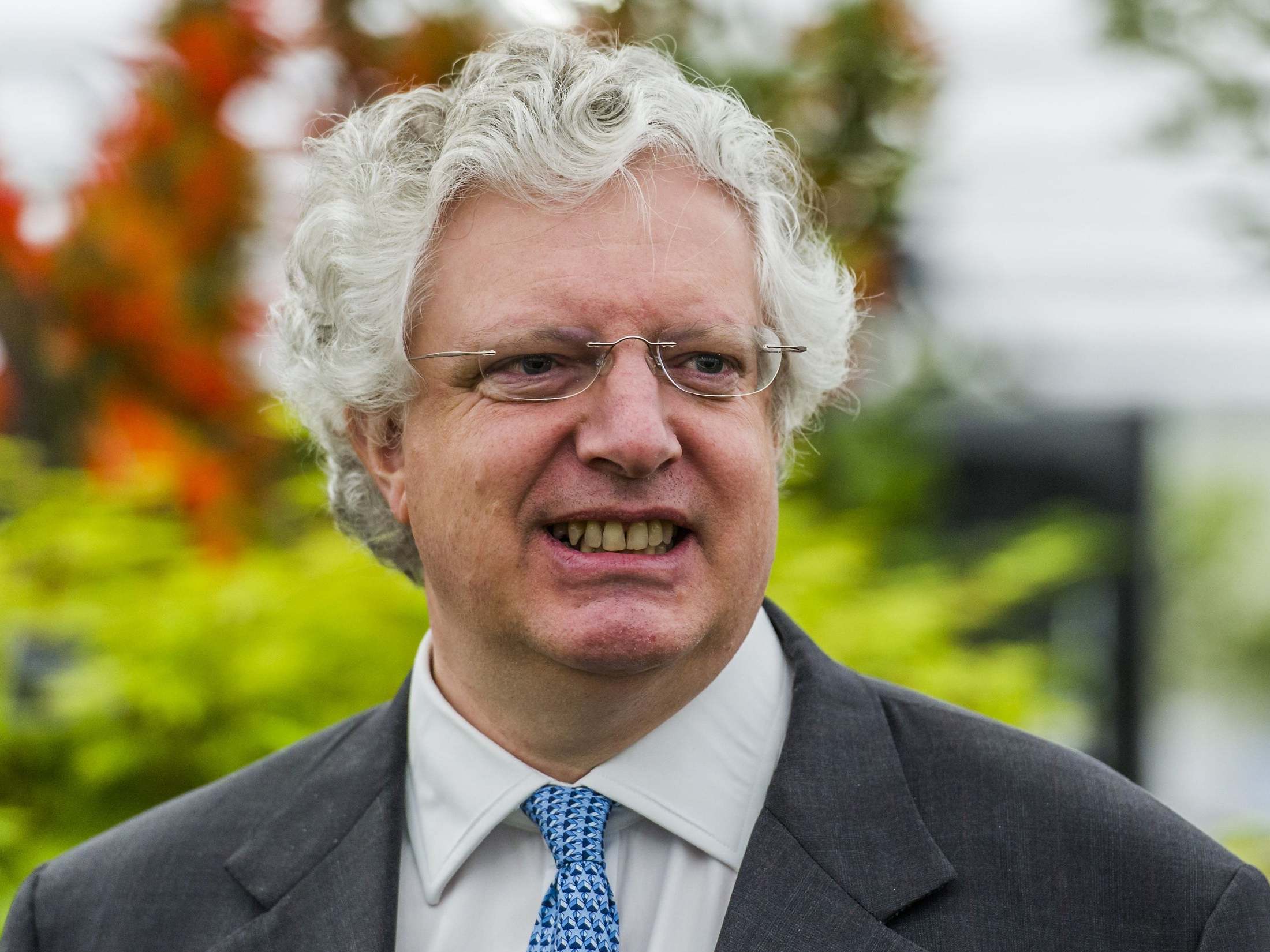What provoked the master of the universe to repent so publicly?
Chris Blackhurst is amused by Guy Hands’ apparent volte-face and suspicious of its timing. Will he put his money where his mouth is?


Like many I suspect I was not alone in doing a double take when I read the words from Guy Hands. The private equity tycoon said his industry “had lost sight of the aim of value creation”. Said the Terra Firma founder: “The culture today in most investment and financial businesses is not fit for purpose for the world we now live in.”
Speaking at the London School of Economics, Hands said he realised in 2017 that, “most of the people working in Terra Firma were only there for the money” and were unhappy. “I offered less money and now, two and a half years later at Terra Firma, 50 per cent of the people who were there in 2017 have left. We have forged a new vision and a new mission and while we have not quite got it right yet, people are far happier.”
Hands claimed the wider industry had stopped talking about “how our companies are performing, how many jobs we’re creating and what we are doing to improve the environment, reduce social injustice and fight corruption”.
Wow. Yes, this really was the very same Hands who was identified with some of private equity’s most aggressive, controversial deals, among them his disastrous £4.2bn acquisition of EMI, the record label, in 2007. The identical Hands who in 2009 became a tax exile in Guernsey, leaving his wife and school-age children behind in Kent at the family mansion.
It meant, as he explained, Hands could never visit them. Indeed, he would only visit his UK-based parents in an emergency. The one who is in the Sunday Times Rich List at £265m, who was paid £40m in a single year at a previous employer, Japanese bank Nomura, and owns homes in the UK, Guernsey, and a country estate in Tuscany.
To say it was hard not to stifle laughter at Hands’ outpouring is an understatement. Putting that to one side, why did he do it, what provoked this master of the universe to so publicly repent? His were not lightly chosen words. Partly, it’s his age. He’s 60. In that regard, his Damascene conversion follows a familiar path. Clever, bright, he enjoys a gilded path through school and university, and a stellar career in business follows, in his case, in banking with Nomura, and then, from 2002, in private equity via Terra Firma.
Along the way he nets a fortune. Then what? Hands finds himself at that stage when he’s thinking about reputation and legacy. For some that can mean the pursuit of an honour, but his relocation for tax reasons is likely to have made that route difficult.
For many, though, it can mean much more than acquiring a peerage or knighthood. They wonder how they will be judged; how, when they’ve retired or departed the stage completely, they will be remembered. Hands would be in strong company if those thoughts were swirling through his head. But in Hands’ case the falling on the sword suggests something deeper. The timing is important: “The culture today in most investment and financial businesses is not fit for purpose for the world we now live in.”
Financial services is a sector that failed miserably to sell itself to the wider public. The greed and obsession with earnings have not helped; neither has the sometimes-cavalier attitude to other people’s money
His sector is in a difficult place, reliant on a culture of deal-making, cost-cutting and secrecy. Its image is one of sharp-suited, business school graduates identifying a business ripe for shake-up, applying their textbook, well-honed techniques, boosting its performance, cashing out, and making a quick, lucrative exit. As such, private equity sits at the pinnacle of an investment and financial world that finds itself under attack like never before.
Much of that hostility stems from years of observing the likes of, well Hands, go about their business. To be honest, if Hands and his ilk had been more open and transparent and were seen to be more concerned about benefiting others, they would not be receiving the opprobrium they’re receiving today.
Nevertheless, Hands is now performing a ritual volte-face. The reason for that is the criticism – not just being directed at private equity but as he indicates most investment and financial businesses. The wider industry has completely failed to explain itself, not articulated the good that it does for clients, how it helps enterprises grow and develop, how it lessens their risks. There will be some reading this who will also fall about laughing or cast barbs in my direction, believing there is nothing positive to say about financial services.
That is not true. It’s a sector that failed miserably to sell itself to the wider public. The greed and obsession with earnings has not helped; neither has the sometimes-cavalier attitude to OPM – other people’s money; and much of what occurs can be fiendishly complex. Now, though, from a most unexpected quarter comes word that enough is enough, that the industry has to turn a corner, in how it is perceived, and in the contribution it makes to the great challenges of the day.
Private equity, investment, banking – they are staffed by smart people. They can put those brains to better use. And, they have one thing that too many sadly lack: the means to make a difference. Hands is making a bold stand. He’s said things that have not endeared him to his fellow financiers. But having said it, he cannot retreat. To do so would be catastrophic for his personal reputation. An expectant world is now watching to see where Hands puts his money.
Join our commenting forum
Join thought-provoking conversations, follow other Independent readers and see their replies
Comments